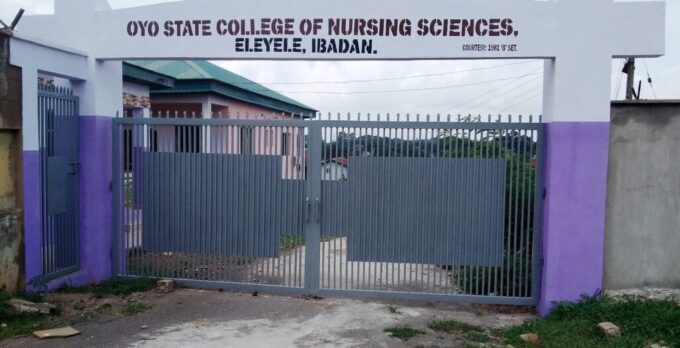By Chinwendu Obienyi
SBM Intelligence, one of Nigeria’s leading geopolitical and socio-economic think tanks, has flagged the emerging dominance of a single private entity in the downstream petroleum sector, warning that Nigeria risks replacing one form of monopoly with another, this time in private hands.
In its latest policy brief seen by Daily Sun, SBM cautioned that the Dangote Refinery’s growing influence over refining, supply, and potentially distribution of petroleum products could pose long-term threats to market competition, pricing structures, and economic inclusiveness.
The group also warned that weak regulatory oversight and inconsistent policy direction may inadvertently entrench an elite-favoured economic system, undermining the survival of smaller players and threatening broader economic resilience.
It noted that while the NNPC simultaneously boasts of a N1.05 trillion after-tax profit and ambitious targets to increase oil production to two million barrels per day by 2025, these figures ring hollow against the backdrop of such vast unexplained discrepancies.
“Indeed, Nigeria’s average daily crude oil production has only seen a modest increase from 1.25 million barrels per day in 2023 to 1.45 million barrels per day in Q1 2024, remaining significantly short of the two million bpd target and still below OPEC quotas”, the report read.
According to the group, this persistent disconnect between reported profits and underlying financial opacity signals a deeper problem of governance and public trust.
Compounding these issues, the group said is the emergence of Dangote Refinery (DR) as a dominant player in the downstream sector.
The report said, “DR’s recent agility in adapting to market circumstances, such as swiftly increasing prices during the Israel-Iran conflict when crude oil rose from below $65 to over $75 per barrel, and then reducing them to N840/litre following a ceasefire and falling global oil prices, demonstrates its nimbleness.
While seemingly beneficial for consumers in the short term, this rapid adaptability by a single entity, coupled with plans for nationwide distribution from August, presents a significant concern. We have previously warned that such a scale of distribution, “if left unchecked, could significantly undermine the independence and survival of thousands of small and medium-scale operators.”
The think tank’s warning comes amid growing debate over the implications of the Dangote Refinery’s market power, as the $20 billion complex continues its phased production rollout. With refining capacity exceeding 650,000 barrels per day which is enough to meet Nigeria’s domestic fuel demand and provide surplus for export, the refinery is poised to transform the nation’s energy landscape.
The Independent Petroleum Marketers Association of Nigeria (IPMAN) also expressing its concern via its President, Abubakar Maigandi warned that allowing any one company to dominate the entire fuel supply chain from refining to distribution could spell disaster for smaller operators already struggling with forex scarcity and regulatory inconsistencies.
“The entire petroleum marketing ecosystem is at risk. If one company refines, controls depots, and floods the retail segment, what happens to the thousands of independent marketers who have been servicing the country for decades?” Maigandi queried.
Analysts believe the Dangote Refinery’s entry into full-scale domestic supply by August could fundamentally reshape the competitive landscape. With NNPC Limited expected to remain a key crude supplier to the refinery and current importers facing reduced roles, downstream market dynamics are shifting rapidly.
SBM argued that this changing structure demands immediate attention from regulators, particularly the Nigerian Midstream and Downstream Petroleum Regulatory Authority (NMDPRA) and the Federal Competition and Consumer Protection Commission (FCCPC).
“The Petroleum Industry Act (PIA) envisions a liberalized downstream sector with active competition. However, liberalization without anti-monopoly safeguards merely exchanges state control for private dominance,” SBM’s report added.
Drawing attention to a broader political economic implication, the report argued that Nigeria’s failure to enforce transparency and accountability in both the public and private spheres fuels the risk of elite capture where economic power is concentrated in the hands of a few, often to the detriment of national development.
As NNPC Limited faces increasing scrutiny over audit discrepancies totalling over N210 trillion highlighted recently by the Senate Public Accounts Committee, public trust in institutional governance is under pressure. Analysts suggest that regulatory complacency in the face of private sector dominance could further deepen that mistrust.
Monopoly, whether public or private, distorts incentives, reduces efficiency, and hurts consumers in the long run,” said energy economist Dr. Kemi Ajayi. “We need independent regulators, competitive pricing mechanisms, and a level playing field. Otherwise, we risk replicating the very problems we sought to solve by reforming the oil sector.”
SBM concluded its briefing by urging the federal government to prioritize antitrust regulation and independent oversight to prevent concentration of power and ensure equitable market access.
“The need for robust regulatory oversight and transparency, both for NNPC’s finances and Dangote’s market practices, is more urgent than ever to ensure sustainable economic growth and protect consumer interests”, the report said.


















Leave a comment